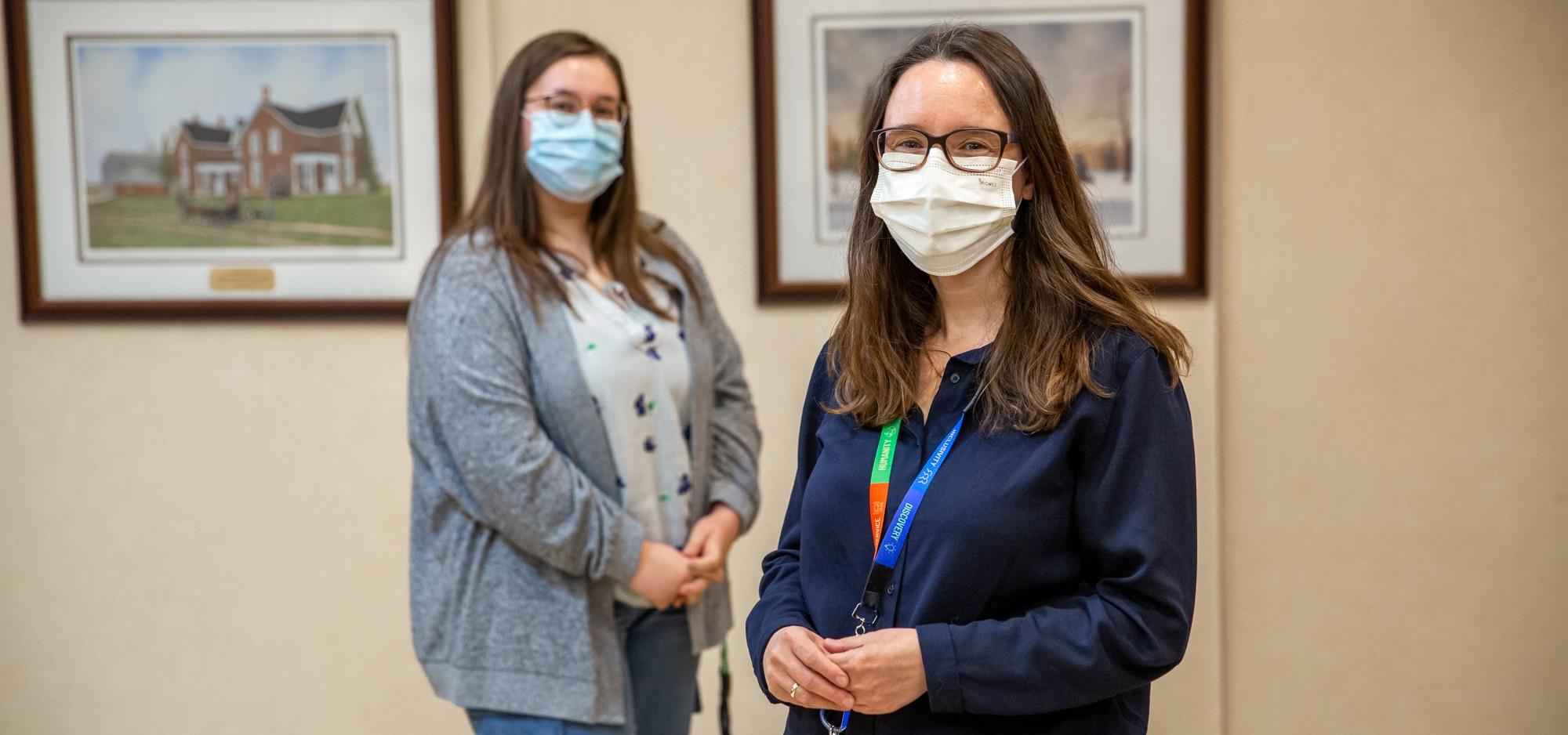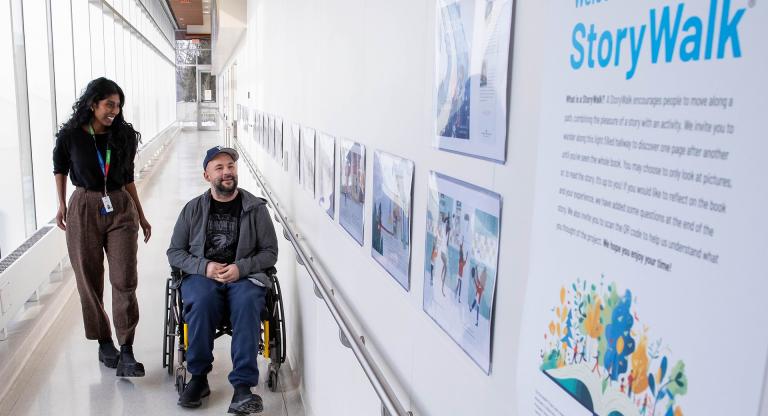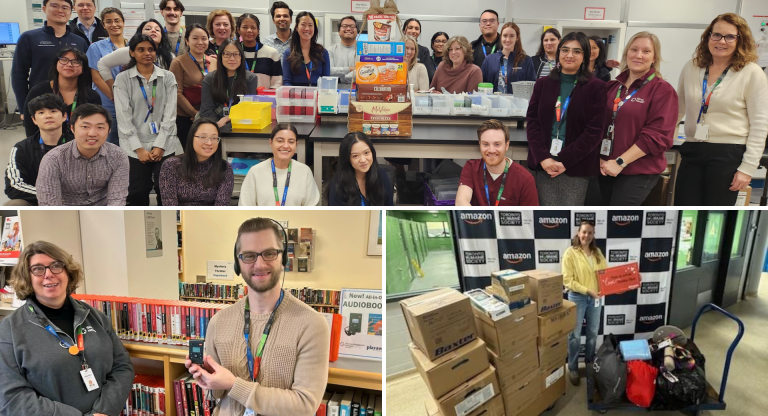Supporting patients with gestational diabetes during COVID-19

When Farzana McCallum was diagnosed with gestational diabetes in July, the news was surprising and troubling. “When I found out, I felt like my head was spinning. I thought, ‘what did I do wrong?’” she says.
Going through her first pregnancy during a pandemic was already daunting. Farzana says she was concerned about how she would access additional care and support to manage the condition.
Gestational diabetes is diagnosed when an individual who did not have diabetes prior to pregnancy, develops high blood sugar during pregnancy. If untreated, it can lead to complications including high blood pressure, high birth weight and increased risk of delivery by C-section. In Canada, the condition affects between three and 20 per cent of pregnancies.
Farzana was referred to Mount Sinai Hospital’s Leadership Sinai Centre for Diabetes, home to one of the biggest programs for gestational diabetes in Ontario. Just days after diagnosis she connected to a virtual group education session run by a nurse and dietitian, certified diabetes educators. She immediately felt reassured.

Farzana McCallum participated in on-line patient education sessions for gestational diabetes provided by the Leadership Sinai Centre For Diabetes.
“One of the first things they told us was, this is not your fault. There are so many factors that can contribute to this. You didn’t do anything wrong and you can control it,” she says. “I really needed to hear that.”
The online session is a new format launched due to COVID-19. Despite this change, Farzana says she had an excellent experience in the program noting that it was clear that the number one priority for the team was the health of the patients and their babies.
Violetta Nikolova, a certified diabetes educator who ran Farzana’s group session, says. “Early intervention with patient education is crucial to managing gestational diabetes. There is a narrow window to begin intervention and we knew that the referrals to our program were not going to stop because of COVID-19,” says Violetta.
Managing gestational diabetes can be a steep learning curve as patients need to make changes to their diets, keep a journal of the foods they eat and monitor their blood sugar every day. Some patients also need insulin therapy.
Violetta and her colleague Morgan Gitt, an Administrative Assistant, are part of the team that redesigned their education materials for the online format, ensuring that the information wasn’t overwhelming for patients. Violetta and Morgan say their efforts have been so successful the team is now working on a study to compare the online and in-person education for patients starting insulin therapy to manage gestational diabetes.
Far from feeling overwhelmed, Farzana says, she had a seamless experience going through the program “I never felt like I was missing out on anything from taking the course online.”
Farzana is now looking forward to the welcoming the new addition to her family this fall.












